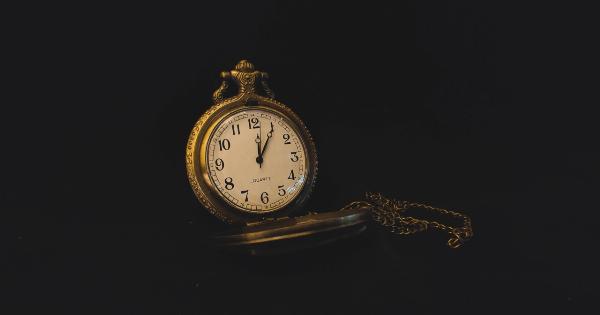Stroke is a medical emergency that occurs when the blood flow to the brain is disrupted, either by a clot or bleeding. This can lead to severe damage to the brain and can cause permanent disability.
The traditional approach to treating stroke involves medications that reduce the risk of future strokes and rehabilitative therapies to help restore lost function. However, alternative treatments may also play a role in stroke recovery.
What is an alternative treatment for stroke?
Alternative treatments for stroke refer to therapies that fall outside the realm of traditional medical care. These therapies may be used alone or in combination with traditional treatments.
Some alternative treatments that have shown potential in stroke recovery include:.
Acupuncture
Acupuncture is a traditional Chinese medicine technique that involves inserting fine needles into specific points on the body.
This therapy is believed to stimulate the body’s natural healing processes and can be particularly helpful in treating the muscle weakness and motor impairment associated with stroke.
Massage Therapy
Massage therapy has been used for centuries to improve circulation, reduce pain, and relax muscles. It may be particularly beneficial for people recovering from stroke by reducing muscle tension and helping to improve range of motion.
Dietary Modifications
Diet is an essential factor in stroke prevention and recovery. A diet focused on whole, unprocessed foods and a variety of fruits and vegetables may help reduce inflammation, lower blood pressure, and improve cholesterol levels.
Yoga
Yoga is a mind-body practice that combines physical postures, breathing exercises, and meditation. It is believed to help reduce stress and anxiety and may improve balance, flexibility, and coordination.
Physical Therapy
Physical therapy is a traditional rehabilitation approach that involves specific exercises to help improve strength, coordination, and balance. It can be beneficial for stroke patients to help them regain motor function.
Chiropractic Care
Chiropractic care involves the manipulation of the spine to correct alignment issues. While it is not typically used as a primary treatment for stroke, it may be beneficial to restore normal neurological function in some patients.
Hypnotherapy
Hypnotherapy is a complementary therapy that involves being put into a state of deep relaxation and focusing on specific goals or issues. It may be beneficial for stroke patients struggling with anxiety or depression.
Mindfulness Meditation
Mindfulness meditation is a practice that involves focusing attention on the present moment. It may help reduce stress, improve mood, and increase focus and attention.
Herbal Supplements
Some herbal supplements may be beneficial for stroke patients. For example, ginkgo biloba has been shown to improve blood flow and cognitive function, while turmeric has anti-inflammatory properties.
Conclusion
Alternative treatments may offer additional benefit to traditional medical care in stroke recovery.
However, it is imperative to discuss these therapies with a medical professional before starting, as some may interact with medications or have potential side effects.





























